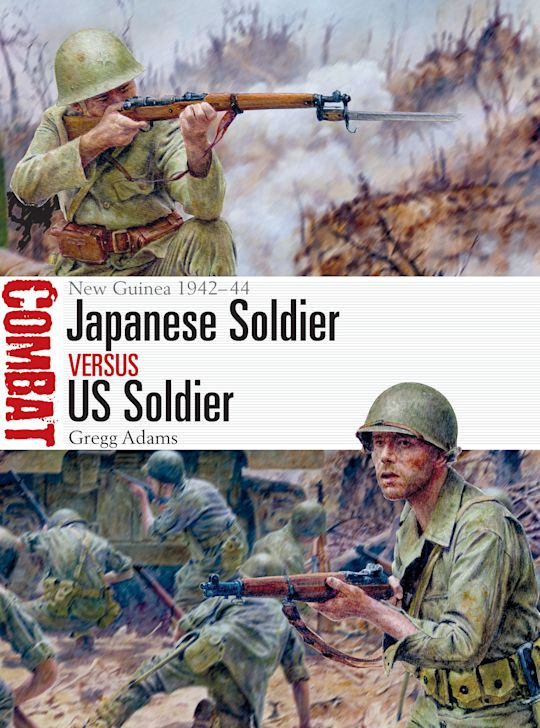You must sign in to add this item to your wishlist. Please sign in or create an account
This absorbing study pits US Army National Guardsmen against Japanese soldiers in the uniquely hostile setting of the New Guinea campaign in World War II.
When Japanese forces attacked Pearl Harbor in December 1941, New Guinea – the world's second-largest island – was administered partly by Australia and partly by the Dutch East Indies. The New Guinea campaign (January 1942–August 1945) saw Japanese forces invade the island, rapidly capturing the key port of Rabaul and threatening Port Moresby, while US forces joined the defenders in increasing numbers. The uniquely demanding environment, and the savage nature of the fighting, meant that the campaign was among the most arduous of World War II for both sides. In this study, the Japanese forces and their US Army opponents, many of whom were National Guard units, are assessed and compared, with particular attention paid to combat doctrine, weaponry, tactics, logistics, leadership, and communications in the challenging setting of New Guinea. The role of US Army National Guard units and their Japanese opponents in three important battles are examined, namely Buna–Gona (November 1942–January 1943), Biak Island (May–August 1944) and the Driniumor River (July–August 1944).
| Published | 28 Oct 2021 |
|---|---|
| Format | Ebook (PDF) |
| Edition | 1st |
| Extent | 80 |
| ISBN | 9781472844149 |
| Imprint | Osprey Publishing |
| Illustrations | Colour artwork plates and maps; black & white and colour photographs and illustrations. |
| Series | Combat |
| Short code | CBT 60 |
| Publisher | Bloomsbury Publishing |

Visit our exclusive member's website to see artwork, maps, and more from this book.

Tell us what titles you would like to see published by Osprey, then vote for your favourites in our monthly book vote!
Free UK delivery for orders £30 and over
Your School account is not valid for the United Kingdom site. You have been logged out of your account.
You are on the United Kingdom site. Would you like to go to the United States site?
Error message.

